Digitalisation of the Erasmus+ programme: strategies and tools
UNICA EduLAB – IRO Group Workshop organised with the support of DG EAC, Higher Education Unit

Objectives
The workshop provided the participants with the opportunity to gain insights into the European Student Card initiative in its multifold aspects, to get clarifications on how the European Commission will support HEIs in this transition, and to share experiences and challenges with colleagues from the UNICA network relating to the three topics below:
- Erasmus Without Paper;
- European Student Identifier & European Student Card;
- Erasmus+ App & student centered approach to digitalisation
Click here to download the presentation provided by Nadia Manzoni, Alexandra Licht and Oana Dumitrescu (DG Education, Youth, Sport and Culture).
Please note that the recording will be available by the end of this week.
Did you participate in the event? Fill in the evaluation form and help us improve our future activities!
Concept note
The European Student Card initiative is a key step in achieving the objectives of the European Education Area by 2025, including significantly boosting student mobility, be it physical, virtual, or blended, and promoting student participation in educational and cultural activities.
The initiative has four core components that are closely interlinked: The Erasmus+ Mobile App, the Erasmus Without Paper Network, the European Student Card, and the European Student eID.
The digitalisation process is centred around the Erasmus Without Paper Network, a digital “phonebook” for higher education institutions, which simplifies the management of student mobility by enabling universities to exchange electronically mobility data in a secure and streamlined manner.
Students get access to the system via redeveloped new Erasmus+ mobile app, which is their point of entry to the information and services they need before, during, and after mobility, allowing for a much more inclusive and user-friendlier Erasmus+ programme.
In September 2021, new features of the app will be launched: allowing students to sign Online Learning Agreements directly on the app; accessing a virtual European Student Card; being able to in the future easily show it in order to obtain access to buildings, resources, and discounts in Erasmus+ Programme Countries, just like a local student, and accessing useful information in one place in all EU languages. Universities will provide even more services online while securing efficient digital management of their student databases.
The European Student eID ensures the “once only principle” for mobile students when completing administrative steps, including filling in their online learning agreement or accessing services online and onsite at the host higher education institution. With the Student eID, students will be able to authenticate themselves online using their national electronic identities when accessing services abroad. Currently, higher education institutions across the EU are deploying the European Student Identifier (ESI) that will enable this interoperability of different IT systems.
All HEIs holding an Erasmus Charter for Higher Education and wishing to take part in Erasmus+ actions will be required to implement the European Student Card Initiative., At the latest by the start of mobilities in the academic year 2022/2023, HEIs participating in the Erasmus+ programme will need to use the Erasmus Without Paper network to exchange student mobility data, starting with managing online learning agreements and signing inter-institutional agreements. The next milestone planned for 2023 is the exchange of student nominations and acceptances and transcripts of records related to student mobility.
Participating institutions will also need to promote the use of the Erasmus+ mobile app to ensure that institutions and Erasmus+ students can benefit from increased efficiency in administrative processes. By 2025, all students in Europe should be able to enjoy the benefits of the European Student Card Initiative.
14 September 2021
online
Schedule
10:00 – 12:30 CEST
Contact
For any queries, please contact:
Laura Brossico (laura.brossico@unica-network.eu) and Viki Csonka (viki.csonka@unica-network.eu)


 Co-funded by the European Union. Views and opinions expressed are however those of the authors only and do not necessarily reflect those of the European Union or the European Education and Culture Executive Agency (EACEA). Neither the European Union nor the granting authority can be held responsible for them.
Co-funded by the European Union. Views and opinions expressed are however those of the authors only and do not necessarily reflect those of the European Union or the European Education and Culture Executive Agency (EACEA). Neither the European Union nor the granting authority can be held responsible for them.